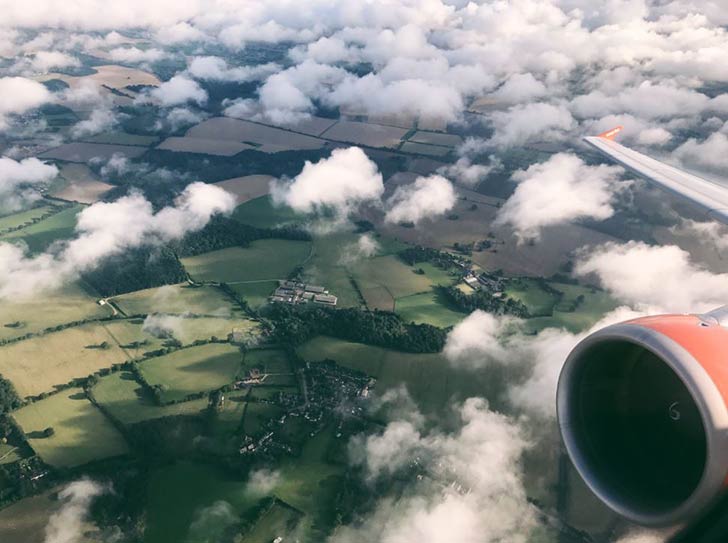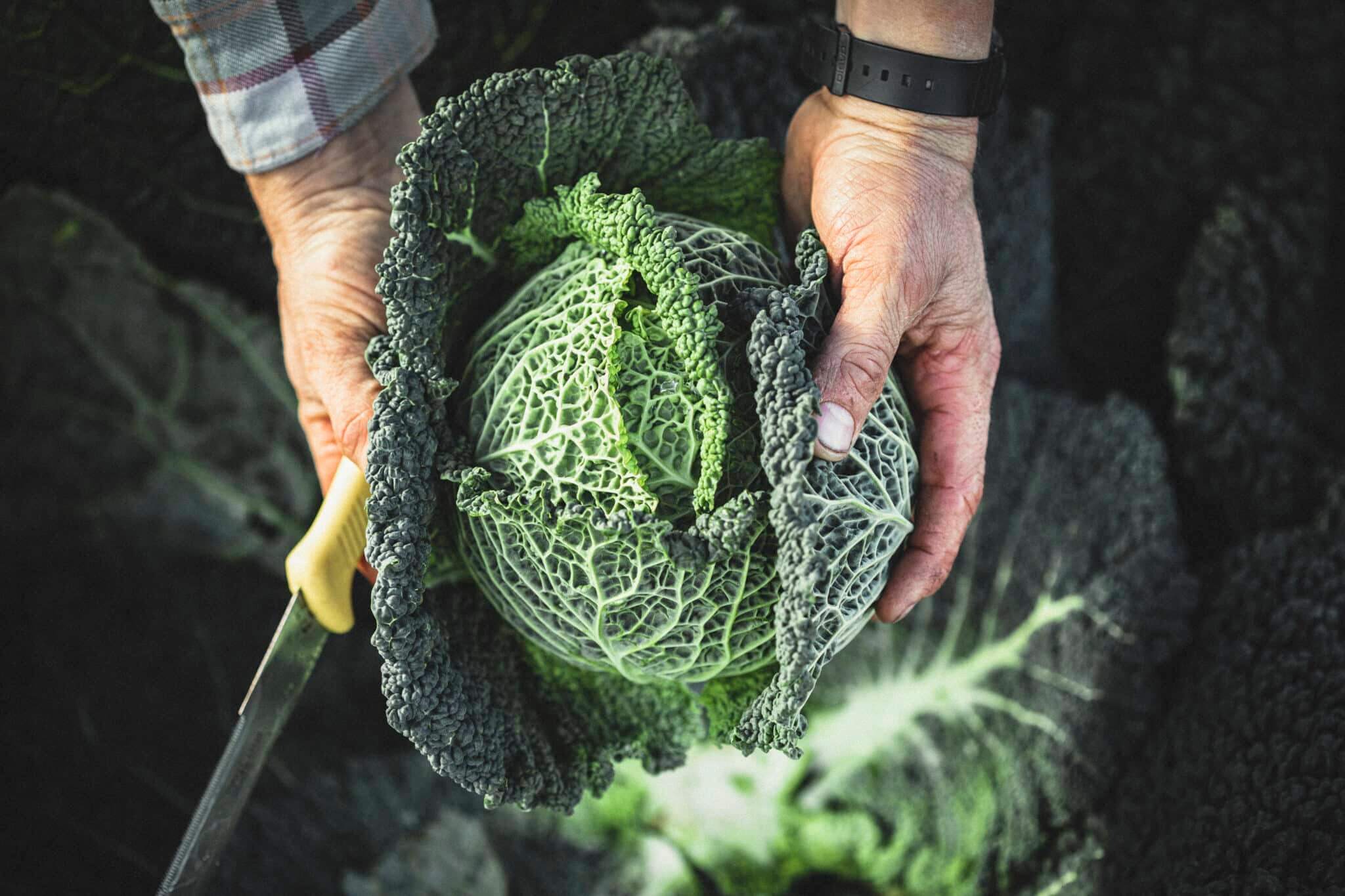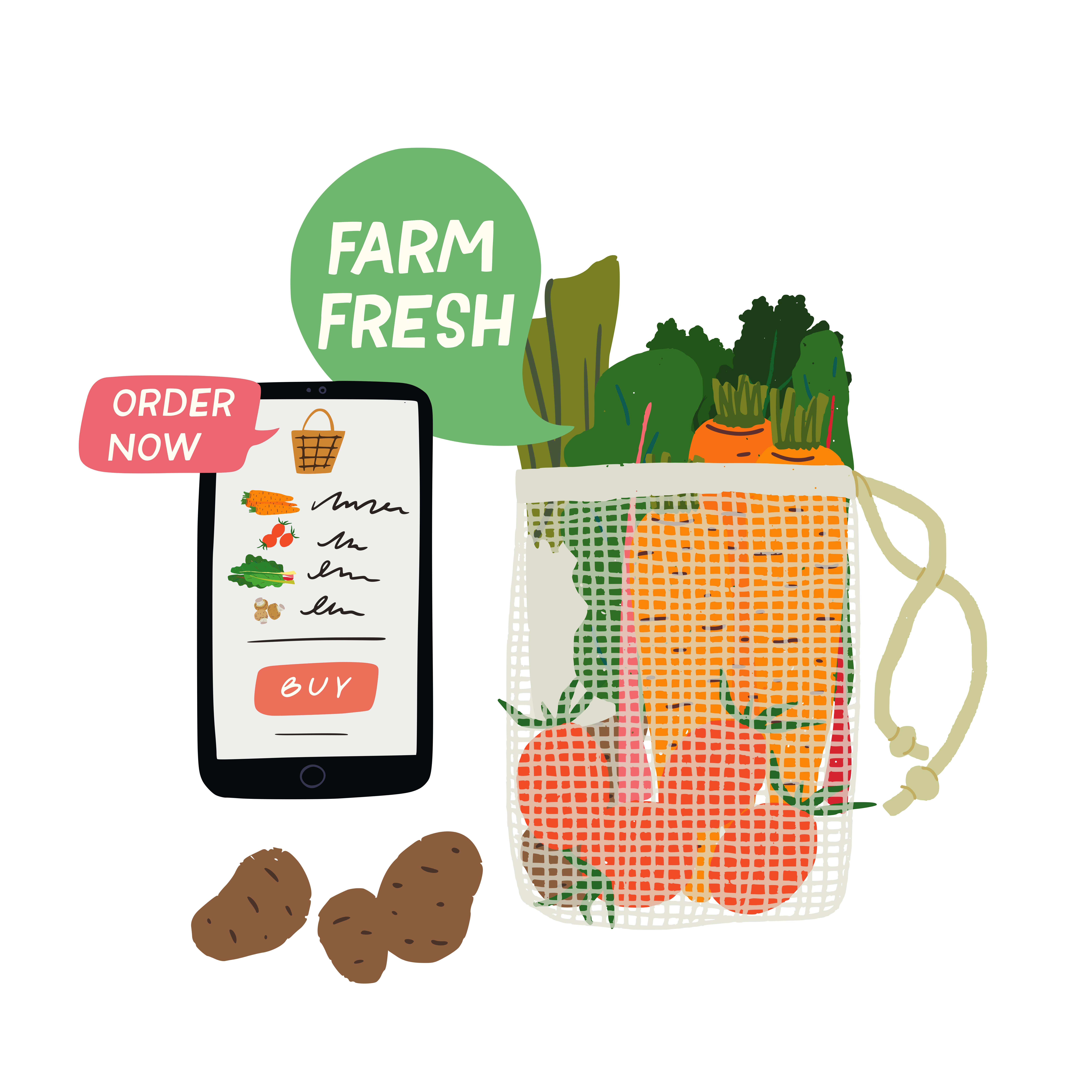Individual actions might seem hopeless in the face of overwhelming climate change and the incessant rise of fossil fuels. But while turning down a plastic straw or recycling might be small fry when it comes to action, there are plenty of meaningful ways to actually make a difference – not least asking tough questions of employers, pension and energy providers and embracing the growing trends and apps for second hand fashion or sharing food leftovers.
Hosted by climate action group Business Declares, five experts shared tips on how to tackle climate in the five F’s: food, fashion, flying, fuel and finance.
Food

While cutting down on meat and eating more fruit and veg will lower the impact of your diet, food waste is where we can have one of the biggest impacts as citizens, according to head of sustainable food at ethical meal kit provider COOK, Andy Stephens. Around 10 per cent of emissions come from food waste, and roughly a third of all food produced is wasted, Stephens said, who also pointed out how dramatically people’s food behaviours had changed during the pandemic. “Food waste fell by 43 per cent during the pandemic due to positive food waste behaviours,” he said. “Things like planning ahead, writing a shopping list, planning in takeaways so they don’t replace food in the fridge, and batch cooking.” Apps like Olio and Too Good to Go also help, suggested Stephens, alongside cutting down meat by around a third by 2030 and buying local, seasonal and from sustainable producers.
Fashion

While fashion currently accounts for between four and eight per cent of global greenhouse gas emissions, this is forecast to reach 26 per cent by 2030 thanks to the rise of fast fashion, with its use of plastic fibres, alongside heavy use of chemicals and water. Most worryingly, two thirds of that clothing is made from plastic – a core outlet for the fossil fuel industry, explained Safia Minney, founder of ethical fashion retailer People Tree and sustainability platform REAL. “89 per cent of emissions come from fossil fuels. Fashion as we know it completely relies on them – we need a total redesign.” There is some positive news. Minney, who said that while fast fashion is rising, so is the sustainable trend for second-hand clothes. “Second hand will be as big as fast fashion by 2030. Repair services will move into the mainstream,” she said, adding tips for how to rethink our relationship with fashion. “Do not buy anything made of plastic (nylon or polyester); switch to second hand, or buy ethical and Fairtrade if you can; be audacious, ask questions and tell your friends what you’re doing and why.”
Flying

Former airline pilot and co-founder of a campaign to help aviation workers understand the climate impacts of their sector, Todd Smith, highlighted that it’s frequent and long-haul flights that have the most damaging impacts. “It’s not the hard-working family who save up for one holiday to the Canaries each year; it’s a polluter elite. 80 per cent of people in the world have never stepped foot on an aircraft, while one per cent of the population create 50 per cent of the demand.” Smith said “there is no green solution to aviation”, highlighting that misinformation and greenwash is rife, such as new so-called ‘sustainable aviation fuel’ coined by petrol giant Shell. “This industry plans to triple their emissions by 2030; they are heavily reliant on offsetting via credits and biofuels. And there is no representation for workers from carbon-heavy industries; often they don’t know the facts,” he said. For those thinking of flying, Smith suggested asking: “Is this flight essential? Can you ask your employer to support incentives for low-carbon travel, such as an extra day holiday?” And highlighting that it’s long-haul flights that are most damaging, he added: “Coral reefs are already dying. Do you really want to fly to the other side of the world to witness ecological collapse?”
Fuel

Investigating energy efficiency measures in your home is a meaningful way to reduce your fuel impact while saving money on energy bills, according to Kit Dixon, policy and regulation manager at Good Energy, who suggested things like double glazing and wall insulation. “Walk or cycle if you can. Don’t use electricity at peak times, like early evening, reduces your impact. Or use energy you’ve generated yourself.” Finding a genuine renewable energy supplier is also important, said Dixon. Some companies offer green tariffs that imply they are 100 per cent renewable. As all energy comes from the grid, which has mixed energy sources including gas, nuclear and renewable, the only way currently to buy 100 per cent green is if your energy supplier buys or generates renewable energy to match what you use. So for every one unit of energy you buy from them, they should match that in generation or purchasing of renewables elsewhere. “When you sign up for a green tariff, ask them how much power do you buy directly or generate,” he added.
Finance

One of the most neglected areas in our climate impact is where we put our money. That’s according to David Hayman, campaign director at Make My Money Matter, who highlighted how there is £3 trillion of private money in the UK solely from people’s pensions. “We started this campaign to inform people after coming across ‘accidental investors’, so vegans who might be unknowingly investing in factory farming, doctors investing in tobacco when they spend their days treating people with smoking-related heart disease, Extinction Rebellion activists investing in fossil fuels,” he said. “The pension pot is an extraordinary amount of money and we believe we should have a say in where it goes. There is also the potential scale of impact. Moving your money has 25 times more impact than giving up flying or becoming a vegetarian.” Hayman said the first thing to do is ask the question: where does your pension money go? “Lobby your pension provider to change, or find one that better aligns with your values. Talk about money and finance with your friends and family. Only about five per cent of companies do anything to align their pensions with the sustainability strategy,” he said.
While this article focuses on where individuals and businesses can make a difference, all speakers pointed to fossil fuels as the underlying cause behind the escalating climate crisis. There is a growing movement by economists and environmentalists to focus on taxing fossil fuels as the only option left in the timeframe required. Join this movement by lobbying MPs or businesses to help fast-track that change. Find out more here.













To my mind whn it comes to the myth called “climate change” the first thing we ALL need to do is “get on the same page”. Take for example the latest farce first they (the so called experts – ex is a has been, spurt is a drip under pressure) tellu s that CO2 is a terrible thing and that alone is responsible for the majority of so called climate change / global warming / global cooling so we MUST stop producing it and bury it etc etc. Then suddenly they tell us that we won’t be having a Christmas because we don’t have enough CO2 to process all those turkeys! dig it up again! And so it goes.
Next we come to the fossil fuel problem – seems we don’t have enough drivers to deliver the stuff so it can be used – not a British problem they say but more a European one! So what happened after BREXIT (oh we are not allowed to mention that word – some are not making enough profit despite what the people who occupy this country of ours . . . . . not that it seems to be ours any more, all those people who died and suffered for our freedoms have wasted their lives – was it worth it? So back come those that we voted to get rid of – I wonder how we suddenly ran out of all these drivers? Not just one or two but thousands – New Visas to bring back some 5000 HGV drivers and some 5500 poultry workers to slaughter etc those poor birds (Ironic that we need more field workers than we need lorry drivers – doesn anyone believe this sh*t?)
Fashion? If the media would stop printing pages and pages of rubbish about fashion it would probably disappear overnight, other than the industry and the Media of course, I doubt if anybody is too interested – looking at what the majority of people are wearing these days says that already!
Onto fuel, does anybody realise how much in human life it costs to get that stuff out of the ground? A lot I can assure you! Life throughout the entire oil industry is cheap – so for that reason invest in new – no not gimmicky stuff like “Electric cars” – look at the precious metals (that cause wars to get hold of – Afghanistan is not about getting rid of terrorists or the poor people who live there wanting to live (as do most others throughout the world) in their own way – tis more about what can be taken from the ground – not only carbonaceous fuels come out of the ground) and the damage that can be caused when you plug your car in to aoscket and leave it overnight = something shorts out – fire and pollution abound, damage death and destruction again! Besides which how many of those lorries mentioned earlier that haul large loads around the place are actually electrically powered – OK we have something called an electrically driven ship – the main propulsion engine IS powered by Electricity but where does that electricity come from? That diesel driven generator onboard the ship maybe? Can we go back to the old ways that not only work but do little or no damage to the environment – like horses and carts, slow gentle non polluting and visually enjoyable or how about wind power . . . . . oh dear we haven’t had enough wind this year to give us enough power so it’s back to fossil fuel to make up for it . . . . . . . . you just couldn’t make this twaddle up could you?
Enough from me – I an standing by for incoming but why waste your time giving me stories to prove otherwise – I certainly won’t believe a word you are saying!
Oh yes and the world is flat, we’d fall off otherwise wouldn’t we
the Walrus
You are so right! I think that the worst narrative is the fact that we humans are responsible for the CO2 emissions. We are responsible for pollution of land sea and air, but when faced with the pollution from volcanoes, we are but very small fry. There are over 300 active volcanoes along the Andes mountain chain, and many more worldwide, gently emitting tons and tons of CO2, the nitrogen gases and much more, so let’s stop beating ourselves and pretending that electric cars are going to solve everything. Electricity still has to be generated, charging points established and new power stations set up. These power stations will have to be nuclear, and they will have to be built SOON.
On a more positive note, we wouldn’t need to freight so much food around the country if we had more locally produced and distributed food. How much bread goes up and down motorways on a daily basis, and how many vegetables are sent away from the production site only to be sent back to the supermarket next door to the vegetable fields? Invest in local production of bread, milk, vegetables and meat so that we don’t need large pantechnicons up and down the roads – and eat seasonally and from local resources.. Plant at least one blackcurrant bush if you have space! I have a local bread source and the local butcher not only knows the name of number of the animal, but also the field on which it was reared. The milk we use is produced less than 50 miles from here. I am working on the vegetable source; I wish I was still young enough to work an allotment.
Blackbird
Switch your pension, that’s the easiest thing. 3 Trillion pounds, a fair chunk of which is going into fossil fuels.
Then switch your current account to an ethical bank.
There will always be a need for fossil fuels , be it gas, oil or coal, to provide chemicals for essential industries like medicine. They can be kept to a minimum – yes – but there will still be a need. I don’t suppose that China, Russia, USA and others will ever stop mining coal. My father used to be the manager of a town gas works, and I remember a large A3 poster with family tree type layout showing all the thousands of chemicals which were produced from the burning of coal in large retort ovens.; from the solid fuel coke to sulphuric acid.- a veritable treasure chest. Perhaps that’s why I decided to study chemistry.
I like this piece and am grateful for it. I find it practical and puts things into perspectives.
I also think Blackbird’s point about local food is a good one. Easier said than done but hopefully more people will do it and it’ll expand.
Not so sure about the argument that human activity related CO2 emissions are not involved with climate chaos though. Seems to me there’s plenty of well founded research on the matter out there.
While I love Walrus’s idea if going back to horse and carts, I think that would take a lot longer than 10 years if it could ever be achieved.
Pedal power is pretty cool though, especially as the metals in your bike can be recycled when finished with.
Thanks again Riverford for this good article and doing what you do towards sustainable food. Happy to be on the journey with you.
I didn’t say that humans are not involved, just that we may not be the main perpetrators.
Anyone else remember some TV programme which told how CO2 escaped from under a lake, and, being denser than air, crept along the ground and asphyxiated a whole African (?) village, people and animals, whilst they were sleeping?
We went to China to watch a solar eclipse, and the air quality was BAD in Beijing; it was ‘foggy’ everywhere. However, on the Great Wall the air was fresh and clear. The trees near the wall (many almond and apricot) were green and healthy, and we even heard a cuckoo. Plant more trees!!
I read a science fiction story where people lived in large clearings in forests, with wood being their only resource – for fuel (wood and wood ethanol). Movement was on foot or by bicycle, and metals, particularly aluminium, were curated to a high degree and recycled assiduously. Food was essentially from the ‘Forest Garden’. I do wonder …………..